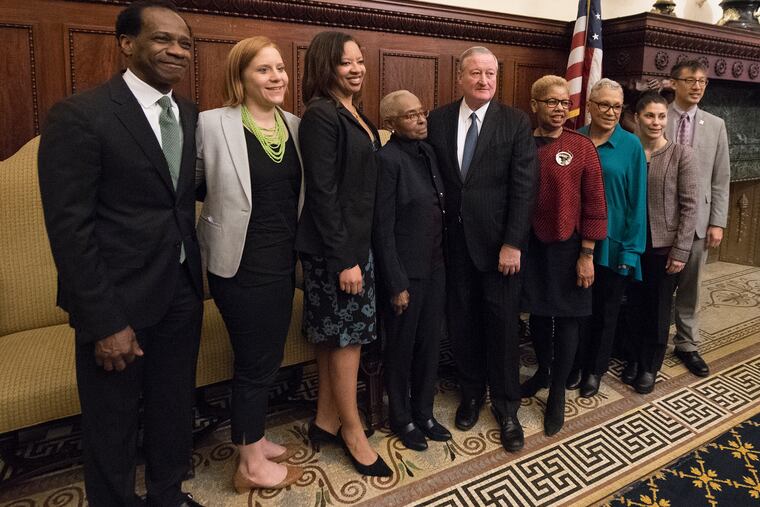Philly school board to take its first votes on applications for new charter schools
In its first chance to expand or curb Philadelphia’s field of charter schools, which enroll about one-third of the city’s public-school pupils, the school board is expected to vote Thursday on three new applications.

In its first chance to expand or curb Philadelphia’s field of charter schools, which enroll about one-third of the city’s public-school pupils, the school board is expected to vote Thursday on three new applications.
If approved, Frederick Douglass Charter High School, proposed for Francisville; Joan Myers Brown Academy, for West Philadelphia; and Tacony Academy at St. Vincent’s, Tacony, could open this fall and eventually serve 2,300 students.
About 70,000 students are already enrolled in the city’s 87 charters, which are publicly funded but independently run and are a continued source of debate in Philadelphia.
Charter advocates say parents need more options and have a new statistic to highlight: 30,000 students applied to city charter schools this year through a new online system.
Supporters of traditional public schools, meanwhile, say the district — and taxpayers — can’t afford more charters. In Pennsylvania, they are funded by school districts, who pay charters based on enrollment and what the districts spend per pupil.
While public schools no longer have to educate students who leave for charters, research shows districts still incur charter-related expenses.
Over the five-year initial term, the three new charters would saddle the district with $42 million in so-called stranded costs — the difference between those carryover expenses and what the district would save in per-pupil expenses, according to Temple University law Professor Susan DeJarnatt.
“This is a lowball figure," she said in a letter to the school board, as it does not include the costs of additional oversight or of higher special education payments the district will have to pay charters.
The board, whose nine members were appointed by Mayor Jim Kenney last year as the city regained control of its schools from the state, agreed in December to allow the struggling Richard Allen Preparatory Charter School to remain open with conditions. Leaders said the alternative was costly litigation, which the district at times has sought to avoid.
It is unclear how the board will approach new applications. In evaluations released last week, district officials identified issues with all three applicants.
The Frederick Douglass Charter High School billed itself as trauma-informed. But its “first line of student support” would be provided by a text-message service, said Christina Grant, the district’s interim head of charter schools. “We really were unclear about who would be on the other end of this text messaging service,” Grant told board members last week.
Joan Myers Brown Academy — named for the Philadanco founder, and run by String Theory Schools — didn’t submit complete curriculum materials for the grades and subjects it would offer in its first year of operation, and didn’t provide any intent-to-enroll forms, Grant said.
Of Tacony Academy at St. Vincent’s, Grant cited concern about the school’s ability to acquire its proposed facilities, currently owned by the Archdiocese of Philadelphia. She also questioned the school’s staffing plan — noting that classroom aides described as essential to the school’s model would be paid salaries of $11,000 — and its proposed agreement with American Paradigm Schools, which operates four other Philadelphia charters.
At that previous board meeting, charter applicants, including Tacony Academy’s Gerald Santilli, a former School District chief financial officer, made clear they were unhappy with the evaluations. “I don’t believe there’s anybody in the charter school office that could question a budget that my organization prepared,” he said.
Jason Corosanite, chief innovation officer at String Theory Schools, told board members that the district’s evaluation was “deeply flawed and extremely biased."